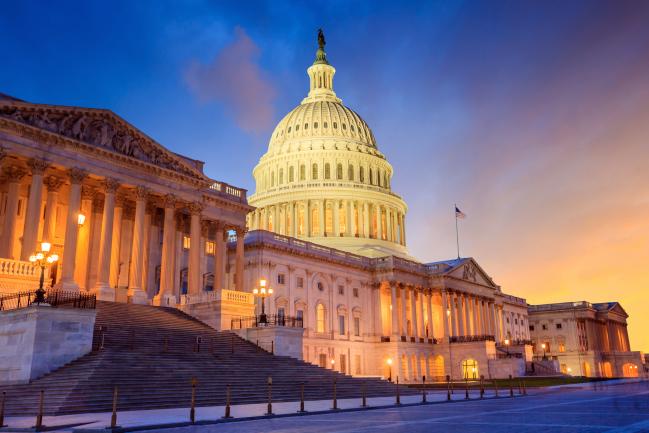ACC Leadership Speaks Out on What US Political Shifts Mean for Cardiologists
A new editorial by ACC President Richard Chazal addresses the current uncertainty and ways to move forward.

The 2016 US election—which voted in President Donald Trump and, for the first time in a decade, shifted control of the Senate, House of Representatives, and the presidency to the Republican Party—is likely to bring many changes to cardiology and challenges to cardiologists.
American College of Cardiology (ACC) President Richard A. Chazal, MD (Lee Health, Fort Meyers, FL), explores how these developments may affect ACC members and their patients in an editorial published online today in the Journal of the American College of Cardiology.
Reactions to the new political scene among ACC members thus far have been mixed, Chazal told TCTMD. “There are not uniform views from a political standpoint.”
While some cardiologists are hopeful, others “have anxiety about change and what that means. From a leadership standpoint, . . . our job is to responsibly deal with that in a way that we hope is ultimately beneficial to patients,” he said, adding, “And like everyone, regardless of party affiliation or voting preferences, there are a lot of unanswered questions. We have to see how this plays out.”
There’s so much change happening rapidly that . . . it’s energizing to be able to try and track this, and to act and react in a way that we hope is for the common good regardless of who is in office. Richard A. Chazal
One thing unlikely to change is the trajectory from volume to value, Chazal predicted. While President Trump has vowed to repeal and replace the 2010 Affordable Care Act, the 2015 Medicare Access and Chip Reauthorization Act, known as MACRA, seems more apt to say, he said.
“We don’t see the election as any mandate to modify a directionality of trying to improve the economics, efficiency, and quality of the American healthcare system,” he said. “A move from volume to value is inevitable under any administration, because it’s not a political issue—it’s an economic and quality issue.”
Moreover, Chazal noted, “the American political system is a really interesting one, and we’re lucky to live in a place that can make peaceful transitions of power. And it’s our job as the ACC . . . to work on behalf of our patients and our members’ ability to provide good quality of care to patients. It’s incumbent on us to work with whatever administration is in power to try to do the best we can with regard to not only legislation but [also] implementation of legislation in a way that allows our members to accomplish their goal.”
But overall, he said, “it keeps us on our toes.”
The ACC’s Health Affairs Committee “is extraordinarily active and working with a significant number of fulltime staff to continually look at a lot of the rules that come out and how they are implemented,” Chazal noted. He also encouraged cardiologists at a state and local level to “identify gaps or opportunities that they see that are developing” in the field.
Staying positive, Chazal concluded: “There’s so much change happening rapidly that . . . it’s energizing to be able to try and track this, and to act and react in a way that we hope is for the common good regardless of who is in office.”
Caitlin E. Cox is Executive Editor of TCTMD and Associate Director, Editorial Content at the Cardiovascular Research Foundation. She produces the…
Read Full BioSources
Chazal RA. National election results: the potential impact on the ACC, its members, and our patients. J Am Coll Cardiol. 2017;69:592-593.


Comments